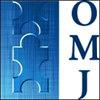Building assertiveness and listening skills using dysfunctional peer project scenarios
Q2 Social Sciences
引用次数: 0
Abstract
Purpose This paper aims to provide an experiential learning exercise that develops student skills in assertive communication and listening in the context of dysfunctional group projects. It offers iterative planning, roleplays and reflection. Variations incorporate additional practice, interim debriefing or multiple partners. Design/methodology/approach A scaffolded approach introduces assertiveness and listening. Students prepare and discuss feedback scripts for two scenarios about problematic team members, articulate perceptions of blame (to call attention to bias) and identify listening tactics. They receive additional scenarios with complementary roles to analyze individually and then practice with new partners. In one, they are assertive, and in the other, they are the dysfunctional group member. Findings The challenges represented by the scenarios resonate with students. Many are shocked by the difficulty of speaking assertively with “problem” group members and find the iterative practice helpful. Practical implications Students avoid directly addressing problems caused by peers or request instructor intervention. This iterative activity helps them close the knowing-doing gap by practicing assertive communication, feedback and listening within the context of realistic group project situations. Social implications This activity develops learner confidence and capacity to handle similar situations. It incorporates valuable soft skills that are transferable to the workplace. Originality/value This activity draws on common problems caused by group members in college project teams. Learners develop scripts and listening approaches and practice assertive communication to achieve better group outcomes.利用功能失调的同伴项目情景,培养自信和倾听技能
目的 本文旨在提供一个体验式学习练习,在功能失调的小组项目中培养学生自信沟通和倾听的技能。它提供迭代规划、角色扮演和反思。设计/方法/途径采用支架式方法介绍自信和倾听。学生们准备并讨论关于有问题团队成员的两个场景的反馈脚本,阐述对指责的看法(以引起对偏见的关注),并确定倾听策略。他们还收到了具有互补角色的其他情景,可以单独分析,然后与新伙伴一起练习。在一个情景中,他们是自信的小组成员,而在另一个情景中,他们是功能失调的小组成员。许多学生对与 "问题 "小组成员进行自信发言的困难感到震惊,并认为反复练习很有帮助。社会影响这项活动培养了学习者的自信心和处理类似情况的能力。原创性/价值这项活动借鉴了大学生项目团队中小组成员常见的问题。学习者可编写脚本,制定倾听方法,练习自信的沟通,以取得更好的小组成果。
本文章由计算机程序翻译,如有差异,请以英文原文为准。
求助全文
约1分钟内获得全文
求助全文
来源期刊

Organization Management Journal
Social Sciences-Education
CiteScore
2.60
自引率
0.00%
发文量
13
审稿时长
8 weeks
期刊介绍:
Organization Management Journal is a blind peer-reviewed online publication sponsored by the Eastern Academy of Management. OMJ is designed as a forum for broad philosophical, social, and practical thought about management and organizing. We are interested in papers that address the interface between theoretical insight and practical application and enhance the teaching of management. OMJ publishes scholarly empirical and theoretical papers, review articles, essays and resources for management educators. Appropriate domains include: -Organizational behavior- Business strategy and policy- Organizational theory- Human resource management- Management education, particularly experiential education
 求助内容:
求助内容: 应助结果提醒方式:
应助结果提醒方式:


